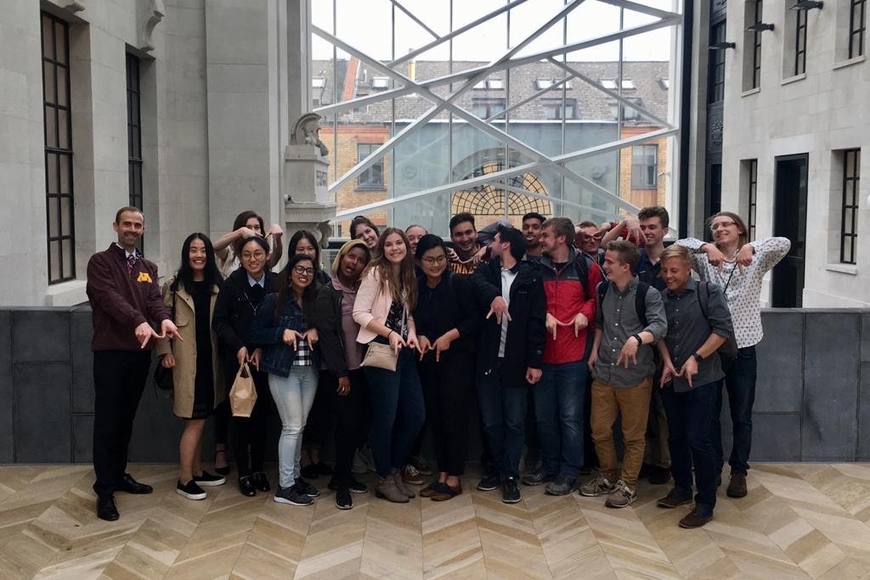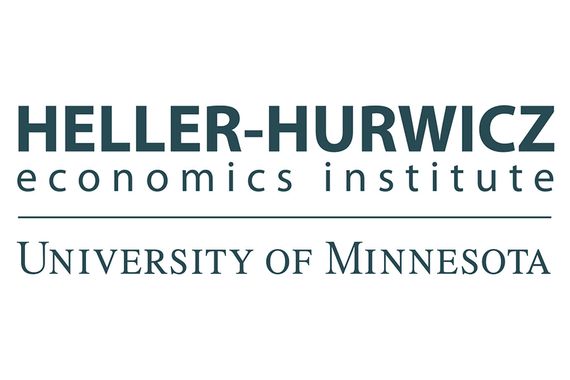Undergrads Take a Close Look at Trade & Brexit in London
This past May, economics undergraduates visited the thriving city of London to understand the impact of Brexit on the city, on businesses, and on the UK as a whole. They were part of Professor Simran Sahi’s Global Seminar titled London: Trade and Brexit.
Through her Global Seminar, Sahi, who is the director of undergraduate studies in the economics department, hopes to help her students appreciate the myriad ways in which the same economic concepts are applied in particular countries. “The idea is to teach students new economic theories and concepts in the context of what is happening in that country at the moment,” Sahi states.
About the Program
The U of M’s Learning Abroad Center annually offers Global Seminars, which are short-term, usually three-credit classes; where students can intimately experience another culture while also learning new concepts and further developing knowledge of familiar ones.
There are plenty of advantages to taking a May-term Global Seminar. They allow students who cannot commit to a full semester abroad to experience all the benefits associated with learning-abroad programs in three concise weeks. Yashree Sharma, a senior who took the course in May 2019, believes that “since this is a shorter program, it is perfect for anyone who doesn’t want to be away for an entire semester but still wants to study abroad.”
This past Global Seminar was the fourth time that Sahi took students to London to show them the financial capital of Europe. It is important, however, to understand why Sahi chose to focus on the city of London. “London is a truly global city,” says Sahi. “Over 300 languages are spoken in London, and it is home to people who have migrated from several countries across the world and follow a variety of different religions.” While the previous three seminars explained the ways in which globalization led to changes in trade in London, this year’s seminar sought to explore the various economic implications of Brexit for the city and for the UK as a whole.
A Peek into a Typical Day
For students in the seminar, a typical day is split into two distinct parts: the first is spent in class discussing topics and concepts pertaining to the economics of trade, while the second half encompasses field trips to locations relevant to the topic discussed in the morning.
“It is a three-credit course, so students have to keep up with everything that is happening in class and need to understand the topics being discussed in order to succeed,” states Sahi. Her students say she does an excellent job of making her lessons engaging and consistent with her plan for the day.
Janet Wang, another student in the course, says, “Through the activities that Dr. Sahi planned for us, my classmates and I enjoyed interactive lessons throughout the city, visiting various museums as well as historical sites.”
As a part of the program, not only do the students get to visit various cultural sites in London, get a glimpse of the city’s rich history, and understand how trade developed over centuries, they also get the unique opportunity to visit the offices of various multinational corporations headquartered there.
This time the students also toured the prestigious London Business School courtesy of an alumnus. “The dean of the London Business School, François Ortalo-Magné, is a UMN economics PhD alum, and was kind enough to take the students on a tour and also give them a talk about how to apply to business school for a masters or a PhD,” explains Sahi.
Students also appreciated the impact that visiting important landmarks, such as the British Central Bank, had on their understanding of international trade and how business is done in large cosmopolitans like London. “It was fascinating to see these historical landmarks that have played such an instrumental role in making London the financial hub that it is today,” explains Sharma.
Gaining Perspective
These learning abroad programs are not just ways to get to know another city and its people but are also a chance to understand how the rest of the world sees the United States.
Sahi believes that this program helps students develop an unbiased opinion of how the world perceives the US’s social and economic actions, because “they meet people who have had experiences that are widely different from their own,” says Sahi. “People talk to you and ask you questions and suddenly you realize that people think about us very differently than what we think about ourselves.” She believes that this idea, expanding our wealth of perspectives, is ultimately the essence of education.
This story was written by an undergraduate student in CLA.



